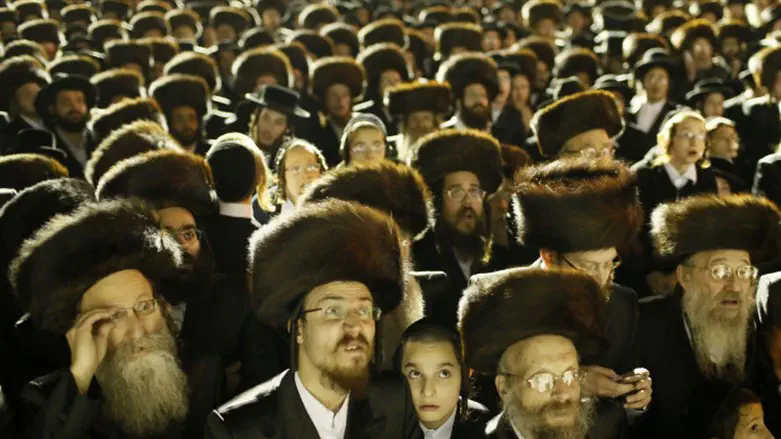
I recently interviewed my uncle, Rabbi Menachem Genack, CEO of OU Kosher. “Serendipitously,” I also recently heard a shiur from Rabbi Eli Mansour. Based on the interview and the shiur, I found common ground with regard to Israel between two gedolim: The Rav (Rabbi Joseph B. Soloveitchik zt”l) and the Satmar Rebbe.
The synthesis of both opinions came by way of an existential question that Rabbi Mansour posed. He asked: Where do we see any nechama after Tisha B’Av? Year after year another Tisha B’Av passes, and we are left bereft of a Third Temple.
To answer, Rabbi Mansour discussed a seemingly perplexing midrash (Yalkut Shimoni on Nach 443) to which the Satmar Rebbe shines light upon. The midrash expresses that G-d asked all the Nevi’im throughout history to visit one by one the children of Israel and offer them comfort. One after another, each comes to comfort the Jews and they are utterly rejected.
Even Avraham, Yitzchak, Yaakov and Moshe are rejected. Then the midrash says, "Immediately, all [of the Nevi'im] walked before the Holy Blessed One and said: Master of the Universe — she does not accept our comfortings, as it is written: “Unhappy, storm-tossed one, uncomforted!” (Isaiah 54:11). The Holy Blessed One said: I and you shall walk to comfort her, i.e. “Comfort O comfort my people” — ‘Comfort Her, O comfort her, my people.’"
The Satmar Rebbe explains that Bnei Yisroel would take comfort in only one kind of final redemption, one where God "walks" and delivers it.
All previous redeemers took us out of one galut only to lead us into another. We want God only for the last one; that's where our comfort will lie.
Rabbi Mansour notes that the Satmar Rebbe had a great love for Israel. He just wanted it to be redeemed in the purest of ways, through God, as he was concerned that man, in his limitations, like previous redeemers, will fall short.
In the interview with my uncle, we discussed various topics and one of them was how he thinks the Rav would view today's government in Israel. The Rav was known to have more of a moderate approach and believed the establishment of the State of Israel was an expression of sovereignty and triggered yishuv HaAretz.
However, he was also concerned with a government that would be bent towards secularism. My uncle said that the Rav would certainly be concerned today about the divisions in the government.
My mother attended Camp Massad in the Pocono Mountains in Pennsylvania. The camp existed from the early 1940s to the 60s. At that time, there was a built-in love for Israel that all the campers felt. Israel was something to be cherished. My mother told me about my great uncle, Eliyahu-Moshe Genechovsky who served in the first and second Knesset. He had great passion for Israel.
If Israel was cherished as it once was, the Knesset could not possibly become only a civil body. The Satmar Rebbe, who survived the Holocaust, had a great love for Israel, and wanted to see a final redemption without the potential limitations of man. The Rav also had his yearnings and hopes tied to Israel with the hopes of final redemption. Though the Rav saw the importance of sovereignty and the establishment of the State of Israel, he would have concerns about the current schisms taking place in the government. Hoping for an exclusive Godly Redemption is something that both of these gedolim would look forward to as it would be final, complete and not vulnerable to the foibles of man.